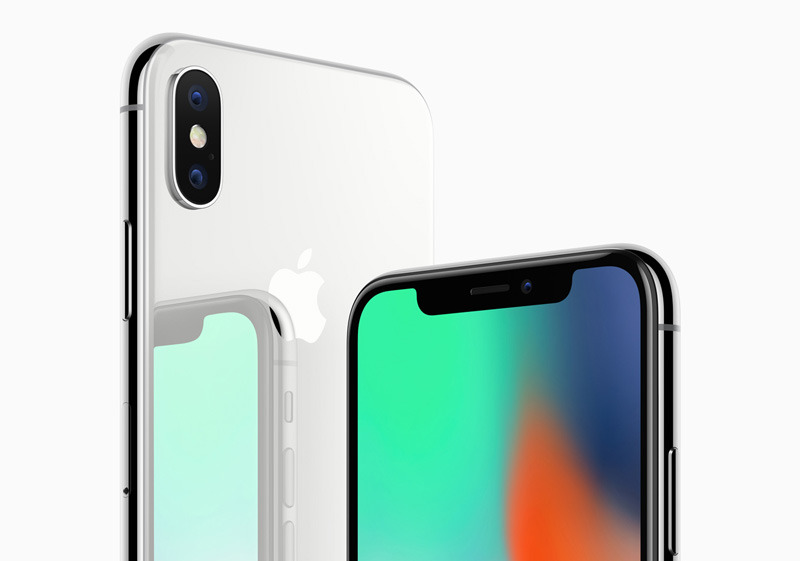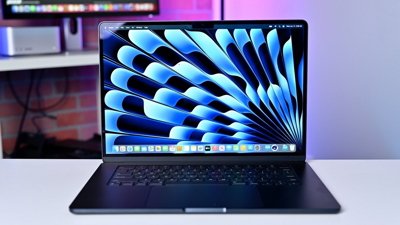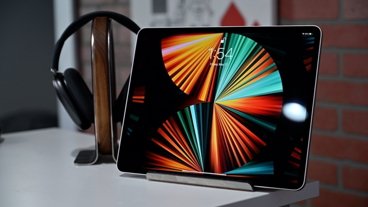To further its augmented reality plans, Apple is reportedly developing a rear-facing 3D sensor for a 2019 iPhone that would join the front-facing TrueDepth system that premiered with the iPhone X.
Instead of projecting a grid of dots and measuring distortion like TrueDepth, the rear-mounted system — currently in evaluation — uses a time-of-flight method that calculates the time it takes for a laser to bounce off objects, sources told Bloomberg. Because testing is still at an early stage, it's not certain whether it will end up in the finished phone.
Apple is nevertheless said to be talking with potential suppliers. Some firms already producing time-of-flight sensors include Sony, Infineon, Panasonic, and STMicroelectronics.
On a basic level a rear-facing sensor could improve the accuracy of apps based on ARKit, which has trouble with vertical planes and depth perception, making it hard for virtual objects to interact with real ones. Apple might also conceivably use the technology for things like better photos and video, delivering more accurate focus, tracking, and effects.
It could also lay the groundwork for the company's rumored AR headset. Indeed a recent report suggested that Apple wants the necessary technology ready by 2019 so it can ship the headset the following year.
That device is expected to have its own display and processor, and run its own platform, internally nicknamed "rOS." It's still not certain how people will interact, but Apple is currently said to be considering a mix of a touch panel, Siri voice commands, and head gestures.
The claims made Tuesday by Bloomberg follow a previous rumor from analyst Ming-Chi Kuo of KGI Securities, who said two weeks ago that Apple won't place a TrueDepth 3D camera in the 2018 iPhone X. Instead. Kuo expects that Apple will hold off on an advanced 3D sensing rear camera for another year, giving the company the opportunity to improve production and reduce costs.
 Roger Fingas
Roger Fingas








 Amber Neely
Amber Neely
 Malcolm Owen
Malcolm Owen
 Christine McKee
Christine McKee

 Chip Loder
Chip Loder
 Marko Zivkovic
Marko Zivkovic
 Wesley Hilliard
Wesley Hilliard









8 Comments
If true, I doubt next year's iPhone X (XI?) would drop in price. I was hoping that the XI would start at less than $999 as the FaceID circuitry would be "commoditized" over multiple phones next year.
I don't see a problem with this functionality coming to devices.
However, how many people will actually make use of this with AR/VR?
To me it seems like only a minority of users would even think of using it.
Not the Apple Insider readers but the general users who just want a device that works for them and their use case.
I take 4K video on my DSLR (with long lenses so a phone is not really suitable) but AR? It isn't even on my radar.
I feel that it is getting to the point where there is so much stuff on phones that most of us don't use but we have to pay for it nevertheless.
The same goes for my latest DSLR body btw so it is not just phones.
Perhaps is it time for a 'basic' iPhone with decent screen size and none of this really, really fancy tech.
At the moment, there is nothing that is drawing me ttowards the iPhone 8/8+ or X. I'll stay with my iPhone 7 probably for another two years.
I suspect that I'm not alone here.
"Perhaps is it time for a 'basic' iPhone with decent screen size and none of this really, really fancy tech."
Oh, you mean like an entry level Android? : )
Naw, people buy as good as they can afford, no matter how much better it is than they truly need.